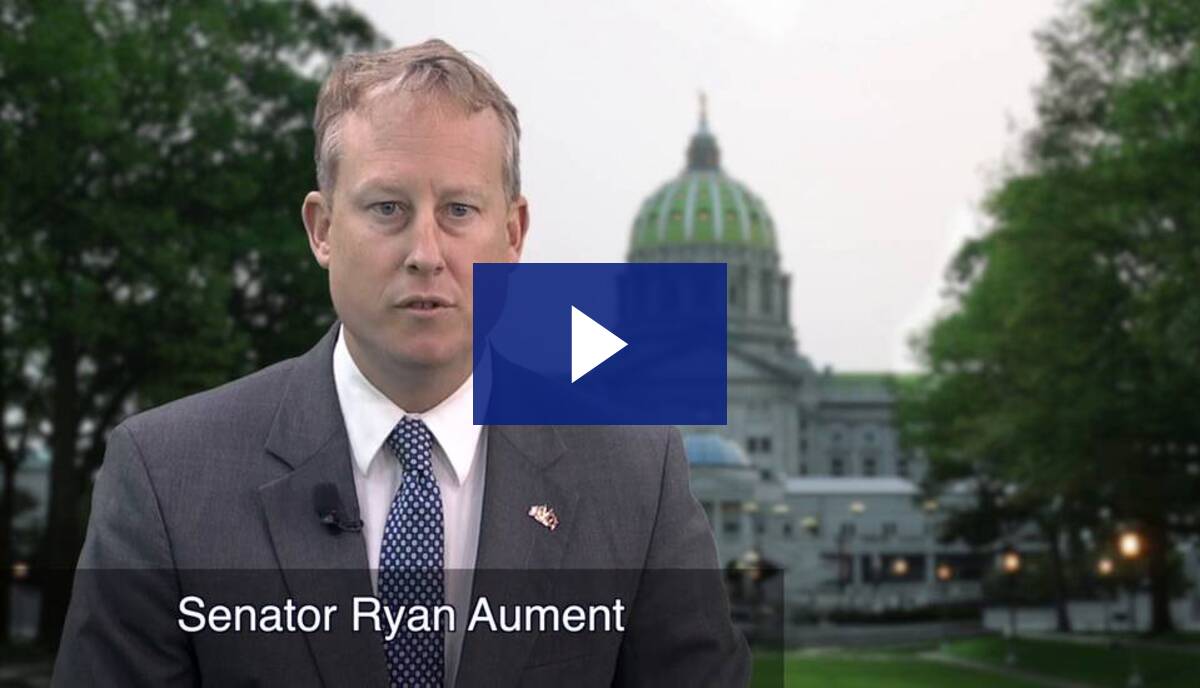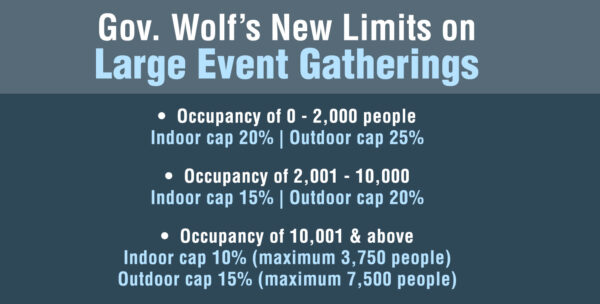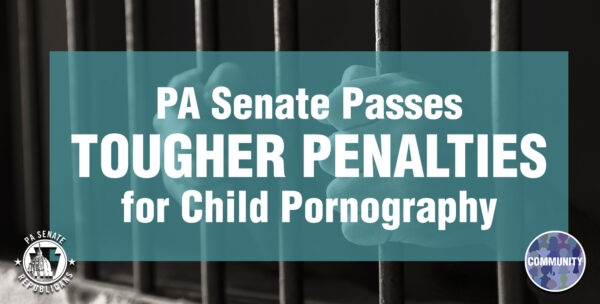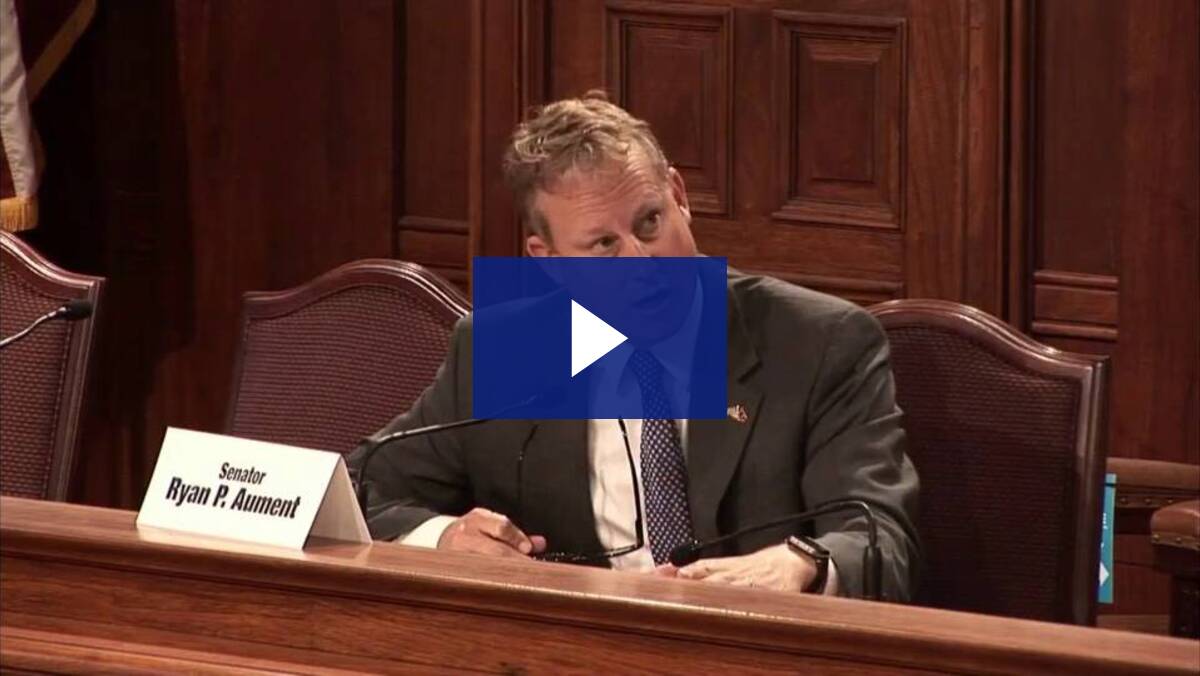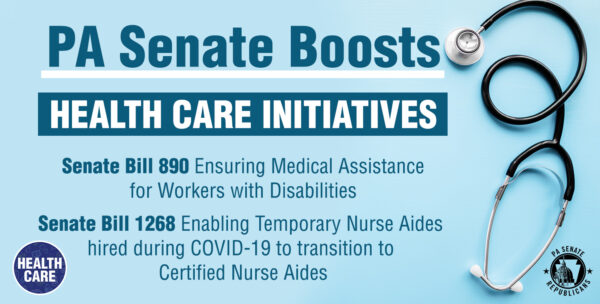
|
||
|
In This Update:
Senator Aument Unveils Legislative Priorities in ‘Restore, Rebuild, & Reimagine PA’ ReportEarlier this week, I announced the release of my Restore, Rebuild, & Reimagine Pennsylvania report, a document containing my legislative priorities based on the results of constituent feedback. In May of this year, a little over a month into the COVID-19 global pandemic, I launched the “Restore, Rebuild, & Reimagine Pennsylvania” initiative with the goal of developing and advocating for a strong legislative agenda alongside my constituents in an effort to collectively restore, rebuild, and reimagine a stronger Pennsylvania in the aftermath of the pandemic. The Restore, Rebuild, & Reimagine Pennsylvania report details the methods used to reach out to constituents, the results from those outreach events (including results from the “Reimagine PA Survey”), and the legislative response to those results. Additionally, throughout the COVID-19 pandemic, I maintained a comprehensive timeline of actions I took to combat the virus and safely reopen Pennsylvania, available to constituents on my website. Based on the survey results and constituent feedback, the report is broken out into five different policy categories that will serve as a blueprint to inform my legislative priorities for the next few years:
You can read the full Restore, Rebuild, & Reimagine Pennsylvania report here. Update on Audit Details Glaring Inconsistencies in Governor’s Business Waiver System
At the request of state lawmakers and business owners throughout the state, the Pennsylvania Department of the Auditor General is taking a closer look at Governor Wolf’s deeply flawed waiver system that determined which businesses were forced to remain shuttered during the COVID-19 pandemic. Although the audit is still ongoing, a status update that was released by the Auditor General this week detailed glaring inconsistencies in the way the waiver system was handled. According to the Auditor General, “The waiver program appeared to be a subjective process built on shifting sands of changing guidance, which led to significant confusion among business owners.” The update also noted that the waiver system was “remarkably subjective,” and in many cases the approval or denial of applications depended heavily on the individual reviewing the application. Approximately 500 businesses received responses that were later reversed by the Department of Community and Economic Development, including 171 waiver applicants that were initially denied and forced to remain closed longer than necessary before finally receiving approval to reopen. I will provide further updates on this issue when the audit is completed. Expanded Indoor and Outdoor Gathering Limits Announced
A federal judge ruled last month that the Wolf Administration’s limits on gatherings were unconstitutional. However, a federal court ruled last week that the limitations should remain in place while the governor pursues an appeal. While these issues are resolved in court, the Wolf Administration updated its guidance on gatherings this week to allow for greater attendance at events that are held at larger venues. The new gathering limits are based on the occupancy limits of the venue.
The Wolf Administration’s new guidance still requires attendees to wear a mask and practice social distancing. The U.S. Centers for Disease Control and Prevention offers guidance to help event planners take the proper precautions to limit the spread of COVID-19. Senate leaders repeated concerns about Governor Wolf’s go-it-alone approach to most aspects of the state’s response to the pandemic and called for greater clarity and local decision-making power for schools and communities who are best positioned to protect their students and neighbors. Legislation to Crack Down on Child Pornography Earns Senate Approval
Legislation was approved in the Senate this week to strengthen penalties for the heinous crime of child pornography and create a new task force to help prevent children from being victimized in the future. The legislation would boost penalties in all cases of child pornography in which the child is under the age of 10 or prepubescent. In addition, the bill would create a special Task Force on Child Pornography to review all laws pertaining to child pornography and make recommendations to improve the investigation and prosecution of offenders to ensure the perpetrators of these crimes are held accountable for the tremendous damages they cause. Senate Passes Comprehensive Information Technology Overhaul
Information technology (IT) plays a critical role in the operations of all state agencies, and inadequate IT systems in state government can impact citizens in a variety of ways. The Senate approved legislation sponsored by Senator Phillips-Hill (R-York) and myself this week that would strengthen, secure and consolidate state government IT systems while saving taxpayer dollars. The legislation would seek to correct issues like the 1950s computer programming language still utilized by the Department of Labor and Industry, the vulnerability of state IT systems to cyberattacks and data breaches, and the lack of a strategic plan for future updates to keep pace with the demands of Pennsylvanians. The bill is estimated to save taxpayers as much as $32 million annually. Read my full press release on the passage of this important legislation here. Committee Examines Bill to Give Students New Resources to SucceedAs Pennsylvania continues to navigate the challenges posed by COVID-19, it has never been more important for students and families to have flexible education options for at-home learning. This week, I participated in a Senate Education Committee public hearing to take a closer look at legislation that would ensure children in Pennsylvania will have access to the educational resources they need to succeed. The committee heard testimony from education experts and advocates throughout Pennsylvania about a proposal to create Back on Track Education Scholarship Accounts to empower parents by providing funding to offset educational costs for their school-age children in grades K-12. The special accounts would help families pay for educational needs such as tutoring, online classes, curriculum, tuition, counseling, and services for students with special needs. Now, more than ever, we need to build bridges between entities that have an interest in education policy – families, students, public schools (including charters), and private schools. I believe the way to do that is by taking a student-centered approach and focusing on what is in the best interest of the student, not what is in the best interest of the institutions. The “Back on Track Education Scholarship Accounts” proposal does just that. Key Health Care Bills Move Forward in the Senate
The Senate approved two bills this week to protect access to health care coverage and services in Pennsylvania communities. The bills would ensure employees with disabilities can continue to work without the risk of losing access to health care benefits and allow temporary nurse aides hired during the COVID-19 emergency declaration to receive certification to continue working. Update for Pandemic Unemployment Assistance (PUA) Claimants
In an effort to combat the continued fraudulent attempts to file for the Pandemic Unemployment Assistance (PUA) program, the Department of Labor & Industry has frozen a number of PUA claims until the claimant’s identity can be confirmed. In order to expedite resolution of identity issues for legitimate PUA claimants, the Department has contracted with ID.me, a federally-certified identity provider that specializes in digital identity protection. Beginning yesterday, PUA claimants whose claims are flagged until identity can be proven will begin receiving an e-mail message instructing them on how to use ID.me to verify their identity. PUA claimants should be aware that these emails are, in fact, legitimate. For individuals whose PUA claims are solely held up because of identity issues, completing this process will clear the hold and allow payments to be released. If there are other outstanding issues on the claim, payment will not be automatically released. More information about the Department of Labor & Industry’s partnership with ID.me can be found here. |
||
|
||





2024 © Senate of Pennsylvania | https://www.senatoraument.com | Privacy Policy |
